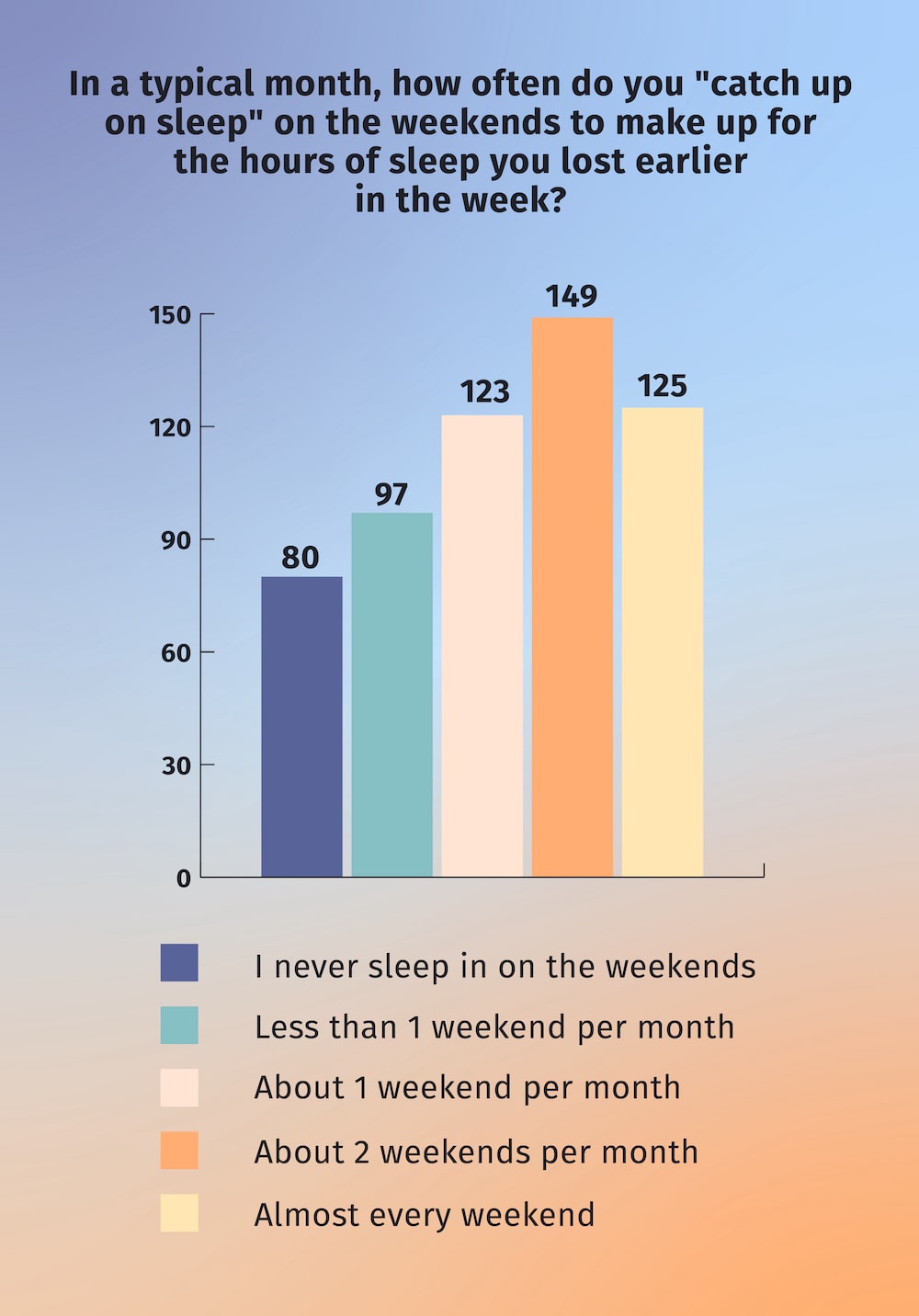Sleep is crucial to staying healthy, and yet many people aren’t getting adequate shut-eye. Sleep debt refers to the cumulative effect of not getting enough sleep over time. This happens when a person consistently gets less sleep than their body needs, which can cause them to feel tired, irritable, and less productive during the day.
Sleep debt can occur for various reasons. These include staying up late to socialize, work, or stay glued to our electronic devices. Sleep debt can accumulate and lead to a range of health problems, including fatigue, poor concentration, and depression.
We partnered with Rise Science, makers of the sleep and energy tracker app, RISE, who provided us app-user data on sleep debt to investigate the problem of sleep debt across America. This data was pulled on January 9th, 2025 and shows two weeks of accumulated sleep debt from RISE app users. We also conducted a survey of participants across the US to explore the state of sleep debt in the nation. Read on to find out the results.
What City Has The Most Sleep Debt?
The cities with the most sleep debt are spread out across the nation, with Las Vegas landing at the top of the list. And it’s no wonder! This is a city with 24-hour nightlife and lights that never sleep themselves.
Which City Has The Least Sleep Debt?
Similar to the cities with the most sleep debt, the best-slept cities are also spread across the country, although most are in the western U.S. Austin, Texas is known for having plenty of opportunities for outdoor activities and fitness. The city also has a reputation for being a relaxed and laid-back place to live, with a vibrant music scene, excellent food, and a strong sense of community. These factors could potentially contribute to a culture that values rest and good sleep habits, leading to lower sleep debt in the population.
How Many People Have Sleep Debt?
On average, folks in our survey thought they got poor quality sleep 3.5 nights during the week. People in suburban areas reported slightly better sleep quality than people in urban or rural areas. Poor quality sleep is often evidenced by feeling excessively fatigued or drowsy during the day. Almost 70% of total respondents reported these symptoms.
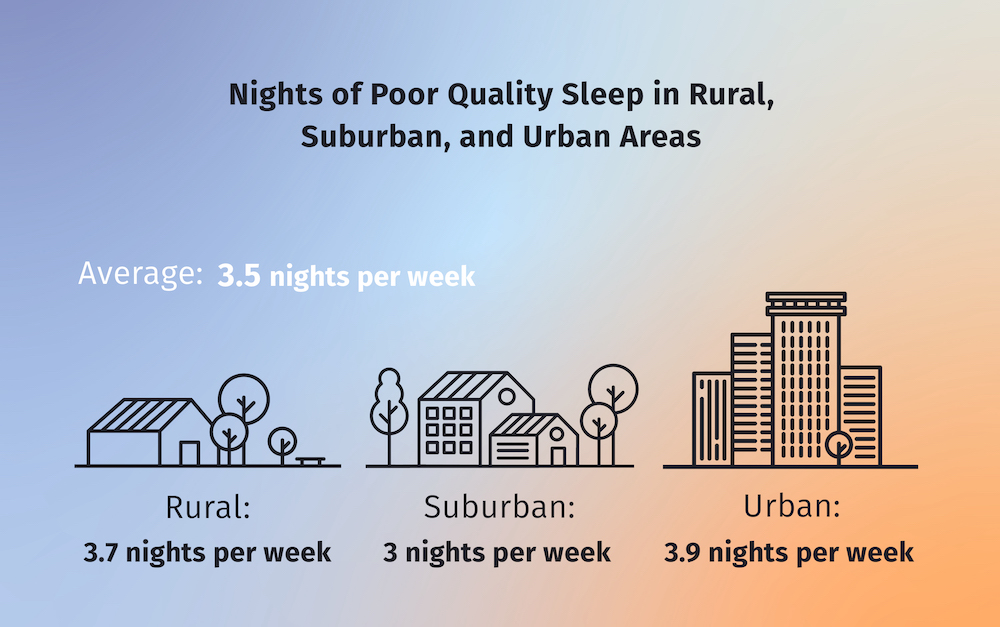
So, can a person catch up on sleep? It depends. Katherine Dudley, MD, tells us that even if a person sleeps more on the weekend and sleeps an average of seven to nine hours per night, their health can still suffer if they are not getting adequate sleep every night. Regardless, 47.7% of survey respondents reported sleeping in for two or more weekends a month to try to make up for lost sleep during the week. More urban residents reported doing this (55%) than suburban residents (41.2%) or rural residents (47.6%).
Common Causes of Sleep Debt
So, why do so many people have sleep debt? While most people would probably prefer to be low on sleep due to night after night of sweet concerts, that’s unfortunately not the case. Work-related stress, tasks, and events were much more likely to keep folks awake.
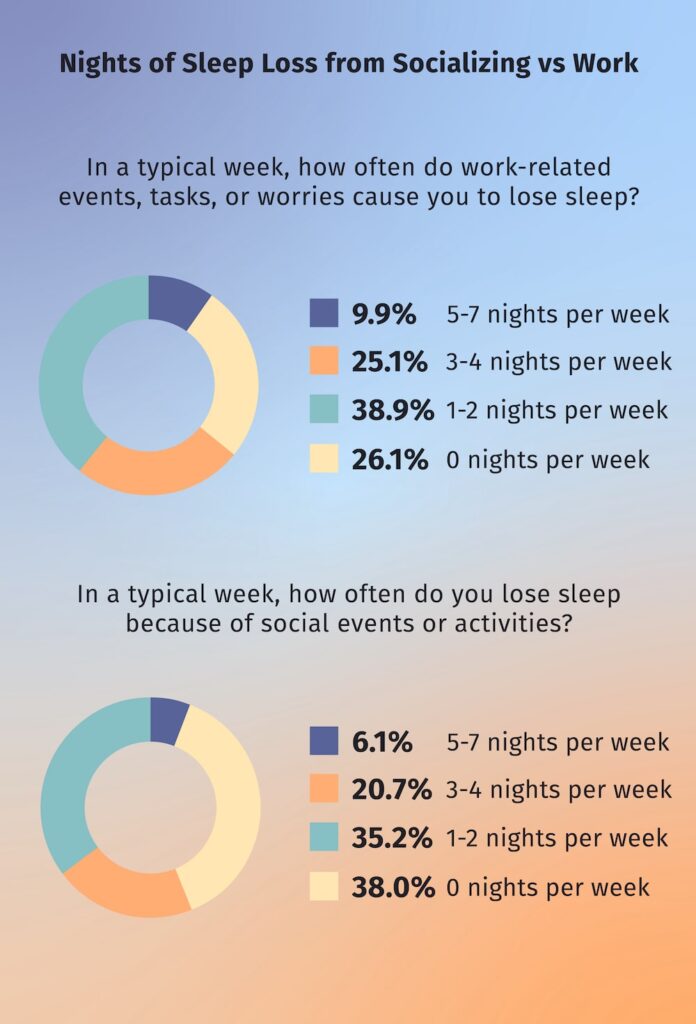
Social Activities and Sleep Debt in Urban, Suburban, and Rural Areas
Social events and activities had no impact on sleep for 47% of suburban residents. For rural residents, that number was 41.7% and for urban residents it was 25.8% (which means 74.2% of urban residents are losing sleep due to social activities).
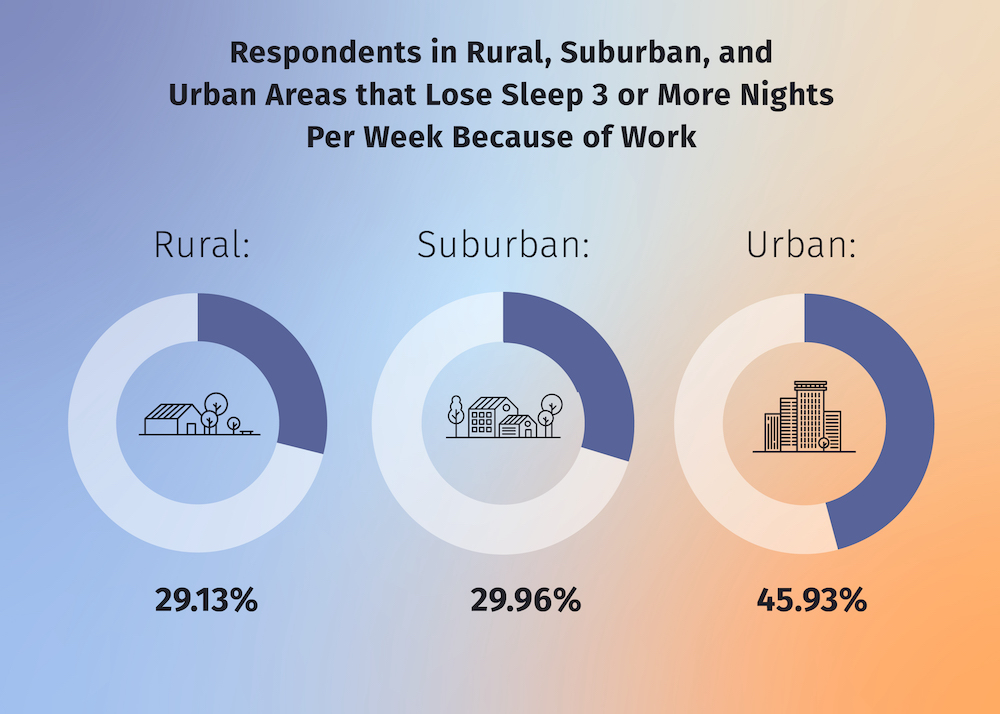
Work and Sleep Debt in Urban, Suburban, and Rural Areas
People in urban areas were also more likely to be losing sleep over work-related things than rural or suburban residents. A whopping 85.2% of urban residents lost at least one night of sleep a week due to these reasons, versus 70% of suburban residents and 60.2% of rural residents.
Stress, Anxiety, and Overthinking
So, what are the overarching reasons people are losing sleep? For the majority of people with sleep debt, those reasons are stress, anxiety, and overthinking. Other common answers included physical discomfort, such as temperature or pain, as well as being woken up by partners, pets, or kids.
How to Track Your Sleep Debt
If you think you’re getting poor quality sleep, you might enlist in the help of a sleep tracker to keep track of your sleep debt. Sleep trackers are wearable devices or apps that track sleep duration, sleep quality, and sleep phases. Some even track factors like temperature, amount of light, stress level or caffeine intake. It’s important to note that these trackers use different variables to track sleep. Some use inactivity, while others measure heart rate or microphone tracking. We were curious to see how people use technology to track their sleep and how sleep trackers can impact sleep debt. To know exactly what is happening with their sleep habits, a person would have to take part in a medical sleep study.
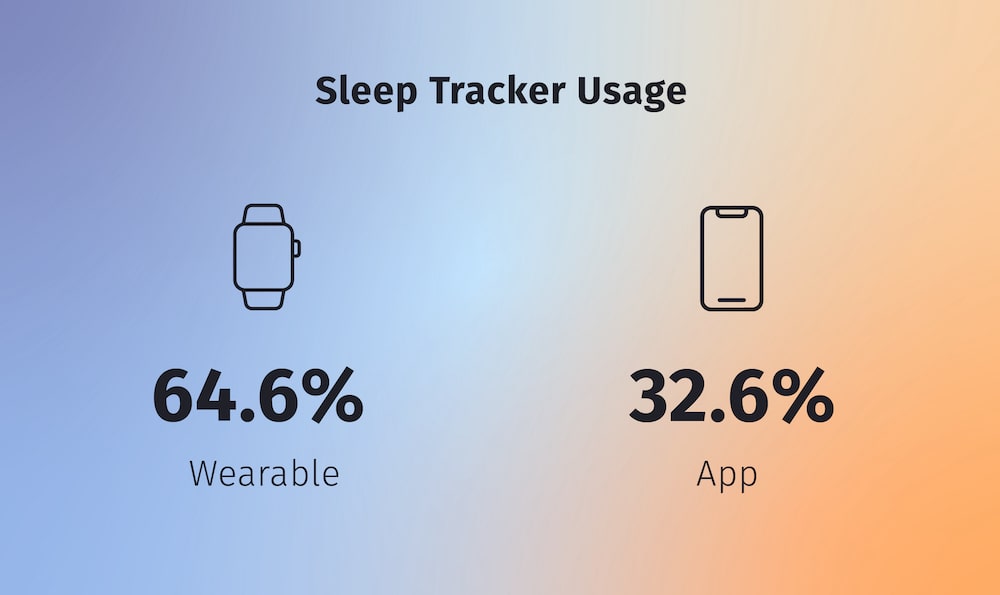
In our survey, folks fell into four categories:
- Those that had never used a sleep tracker (38.4%)
- Those that used a wearable sleep tracker (34%)
- Those that used an app to track their sleep (16.2%)
- Those who used to use a sleep tracker (11.3%)
So, how did sleep tracker data compare to respondents’ subjective opinions about their sleep quality? Sleep tracker users reported an average of four nights of poor sleep during the week, while the trackers measured about 3.5 nights of poor sleep quality.
The most common reasons for stopping sleep tracker use were: the device was uncomfortable, the person started getting better sleep, or the user believed the device was inaccurate. Sleep tracker use was highest for urban residents (62.7%) and lowest among rural residents (40%).
Final Thoughts
Sleep debt is a common issue that can have a big impact on your health, wellbeing, and productivity. To avoid sleep debt, it’s important to focus on sleep as an essential part of your daily routine and make sure you’re getting enough quality sleep each night. This can involve establishing a regular sleep schedule, creating a relaxing sleep environment, and avoiding activities that can disrupt our sleep, such as caffeine and electronic devices before bedtime. With proper attention to our sleep habits, we can minimize the accumulation of sleep debt and maintain good physical and mental health.

